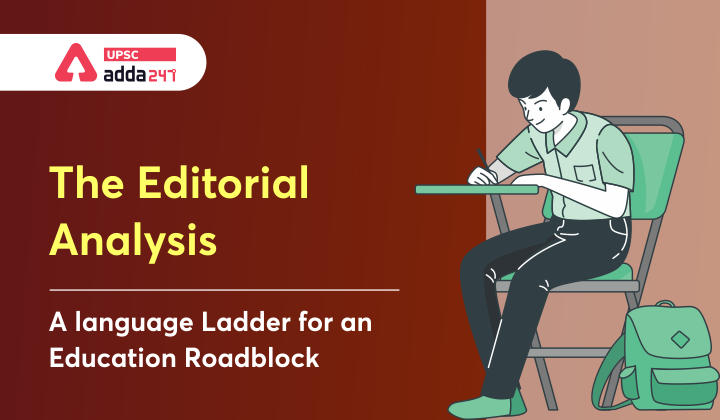Table of Contents
Relevance
- GS 2: Issues relating to development and management of Social Sector/Services relating to Health, Education, Human Resources.
Key points
- 14 engineering colleges across eight States have decided to offer courses in regional languages in select branches from the new academic year.
- India Council for Technical Education (AICTE) has decided to permit B. Tech programmes in 11 native languages in tune with the New Education Policy (NEP).
- Vidya Pravesh programme has been launched to promote mother tongue in elementary education.
Use of mother tongue: Why important?
- It improves the learning outcomes of the child and the develop his/her cognitive faculties.
- Multiple studies have proved that children who learn in their mother tongue in their early, formative years perform better than those taught in an alien language.
- According to UNESCO, learning in the mother tongue is germane to building self-esteem and self-identity, as also the overall development of the child.
- Use of mother tongue as the medium of instruction instils confidence in students from poor, rural and tribal backgrounds.
- It will help millions of students realise their dream of pursuing professional courses in their mother tongue.
- In a survey conducted by the AICTE, nearly 44% students voted in favour of studying engineering in their mother tongue.
- Sir C.V.Raman, the great Indian physicist and Nobel Laureate, advocated that to make science participative, it should be taught in mother tongue.
Present situation
India
- While our educational system offers a wide variety of courses like engineering, medicine, law and the humanities, we have excluded our own people from accessing it.
- The bubble of English medium universities and colleges has created an academic roadblock, impeding the progress of the vast majority of our students.
Asia
- Nearly 70% of the universities in South Korea teach in Korean.
- In Japan and China, most of the universities teach in the dominant language.
Europe
- France has a strict ‘French-only’ policy as the medium of instruction in schools.
- In Germany, while the language of instruction in schools is predominantly German, even in tertiary education, more than 80% of all masters’ programmes are taught in German.
North America
- In Canada, while English is the dominant medium of instruction in most provinces, in Quebec, a province with a majority French-speaking population, French is the medium of instruction in both schools and universities.
How to improve situation in India?
- As envisaged by the NEP, we must impart primary education (at least until Class 5) in the student’s mother tongue, gradually scaling it up.
- For professional courses, the initiative of the 14 engineering colleges should be replicated all across the country.
- Private universities must join hands and offer a few bilingual courses.
- Lack of high-quality textbooks in the native languages, especially in technical courses, needs to be addressed urgently.
- Content in the digital learning ecosystem should be made in the Indian language courses to make them accessible to the students residing in remote areas.
- Tech-led initiatives like SWAYAM (Study Webs of Active–Learning for Young Aspiring Minds) are needed to democratise higher education.
Way forward
- ‘Mother tongue versus English’ approach should be replaced with ‘Mother tongue plus English’ approach.
- The sense of inferiority that some of us display when it comes to speaking in our own languages, should be removed as such behaviour risk depriving future generations of their cultural roots and social and linguistic heritage.



 TSPSC Group 1 Question Paper 2024, Downl...
TSPSC Group 1 Question Paper 2024, Downl...
 TSPSC Group 1 Answer key 2024 Out, Downl...
TSPSC Group 1 Answer key 2024 Out, Downl...
 UPSC Prelims 2024 Question Paper, Downlo...
UPSC Prelims 2024 Question Paper, Downlo...




